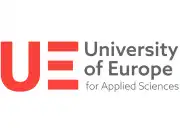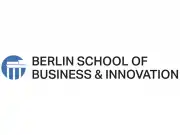MBA programs abroad for international students
- Advantages of Studying MBA Programs Abroad
- Formats and Levels of MBA Programs Abroad
- Top Universities for MBA Programs Abroad
- How to Apply to MBA Programs Abroad
- Language of Instruction and Preparation for Admission to MBA Programs Abroad
- Tuition Fees for MBA Programs Abroad
- Scholarships and Grants for MBA Programs Abroad
- Career Prospects After MBA Programs Abroad
- Frequently Asked Questions

MBA - International Hospitality Management
B.H.M.S - Business and Hotel Management School - Lucerne, SwitzerlandUsing case studies, group projects, and real-world business examples, the MBA program at the B.H.M.S. Business & Hotel Management School, in partnership with York St. John University, helps young professionals improve their managerial knowledge and skills.
Students who choose to focus in…

MBA - Innovation and Entrepreneurship
B.H.M.S - Business and Hotel Management School - Lucerne, SwitzerlandTo help young professionals improve their managerial knowledge and skills, the B.H.M.S. Business & Hotel Management School and York St. John University provide an MBA program that emphasizes hands-on training through the use of case studies, group projects, and actual business scenarios.
The…

Master of Business Administration - Global MBA
GISMA Business SchoolLearn practical skills in areas including strategic decision making, operations and business control, value creation and protection, human resource management, and organizational design with an MBA from a school certified by the Association of MBAs (AMBA).
Earning this degree, which is recognized…

MBA - Master of Business Administration
University of Europe for Applied Sciences - GermanyCompanies today face problems due to digitalization, globalization, and the rising demand for sustainability.
Professionals and executives with the ability to spot and implement novel, future focused company models are in high demand.
You may build a solid foundation for your professional…

Master of Business Administration - Sustainable Water Management
University of Europe for Applied Sciences - GermanyThe private and public sectors, as well as between political institutions and nations, are increasing their focus on resource conservation, water supply, and use.
Because of this demand, there is a greater requirement for solutions that are grounded in science and are in step with the most…

Master of Business Administration - Shipping and Logistics
University of Europe for Applied Sciences - GermanySea logistics connect a wide range of enterprises and industries.
Businesses need forward-thinking management concepts and experts to implement them to fulfill increased demand and extend supply chain networks.
Hamburg offers forward-thinking MBA classes. The Crossroads of the…

Master of Business Administration - Innovation and Technology Management
University of Europe for Applied Sciences - GermanyManagement is becoming digital.
Globalization, the desire for technical innovation, and its compatibility reinforce the need for technical managers.
Digitalization and transformation management skills are in demand.
Our Innovation & Technology Management MBA trains you…

Master of Business Administration - Diplomacy
University of Europe for Applied Sciences - GermanyGlobalization demands managers to think in tough settings to identify growth opportunities for their firms.
The economic cooperation pact between nations offers enterprises a chance to establish new profit streams.
Within the MBA Diplomacy, you'll learn how to deal with rising…

Master in Business Administration (MBA) - UCA
Berlin School of Business and InnovationDegree awarded by University for the Creative Arts
If you're interested in expanding your professional horizons, a Global MBA from BSBI is a great way to get insight into the international business scene and make connections with peers from all around the world.
Therefore,…

Master in Business Administration (MBA) - CUC
Berlin School of Business and InnovationDegree awarded by Concordia University Chicago
An MBA is a great method to get the business training and professional experience you need to take your career to the next level. It can pave the way to higher-level roles, higher salaries, and greater chances.
Many various…
Advantages of Studying MBA Programs Abroad
Studying in an MBA program abroad offers a number of advantages that often determine the decision of young people and their parents. Here are the key ones:
- High Quality of Education – universities offering MBA often have international accreditations, a strong faculty, up-to-date programs, including case studies, projects with real companies.
- International Network of Contacts – students meet classmates from different countries, professors and alumni, which contributes to expanding professional connections and potential opportunities for cooperation.
- Increased Competitiveness in the Labor Market – a diploma from a foreign university and skills in management, strategic thinking, leadership and intercultural communication are valued by employers.
- Better Career Prospects and Social Lift – MBA graduates often get higher positions, larger salaries, can work in international companies or start their own business with broader opportunities.
- Development of Skills in English or Other Languages – a significant part of the programs is conducted in English, which improves language skills, as well as the ability to work in an English-speaking environment.
- Innovation and Business Environment – foreign campuses are often located in centers where startups, financial structures, technology hubs are developing, which allows participation in an intensive business ecosystem.
Formats and Levels of MBA Programs Abroad
MBA programs can vary in format, duration, required experience and levels:
- Full-Time – full-time form of study, duration usually 1–2 years. Requires full immersion, often students leave work.
- Part-Time / Executive MBA – designed for working managers. Classes are held in the evenings, on weekends or in a mixed (hybrid) format. Duration can range from 18 months to 3 years.
- Online MBA – fully remote or blended formats. Perfect for those who want to study from their home country, combining with work.
- Global / Joint MBA – programs in which a student spends part of the study at one university, part – at another, possibly on different continents.
- Specialized MBA – with a focus on a specific area: finance, marketing, supply chain management, sustainable development, entrepreneurship, etc.
Program levels:
- Classic MBA, requiring work experience, business concentration.
- Executive MBA (EMBA) – for middle and senior managers, with extensive experience.
- Module programs and short-term formats – intensive courses that provide basic skills, but not a full MBA diploma.
Top Universities for MBA Programs Abroad
Below is a table with examples of leading universities, MBA tuition fees for international students and their place in QS or THE rankings.
| University | Program | Tuition fee for international students | Ranking (QS or THE) |
|---|---|---|---|
| Harvard University (USA) | MBA Full-Time | ~ 73,000 USD per year | QS: ~ 2–3 |
| London Business School (UK) | MBA Full-Time | ~ 95,000 GBP for the program | THE: ~ 1–2 |
| INSEAD (France / Singapore) | MBA (10-month) | ~ 100,000 EUR / SGD | QS: ~ 1–2 |
| Stanford University (USA) | MBA Full-Time | ~ 75,000 USD per year | THE: ~ 2–3 |
| University of Pennsylvania – Wharton (USA) | MBA Full-Time | ~ 80,000 USD per year | QS: ~ 1–2 |
| University of Chicago – Booth (USA) | MBA Full-Time | ~ 75,000 USD per year | QS: ~ 3–4 |
| London School of Economics (UK) | EMBA / MBA | ~ 60,000–90,000 GBP | THE: ~ 5–10 |
| York University (Canada) | MBA Full-Time | ~ 55,000–65,000 CAD | QS: ~ 100–120 |
How to Apply to MBA Programs Abroad
Application stages:
- Researching Options – choosing a country, university, format (full-time, part-time, EMBA, online), specialization.
- Document Preparation – obtaining all necessary certificates, translations, document translation, checking passport validity.
- Taking Exams – often require GMAT or GRE, as well as language proficiency tests: IELTS, TOEFL or Duolingo.
- Preparing an Essay / Motivation Letter – describing goals, professional experience, why this particular university, what the student can contribute.
- Recommendation Letters – usually 2–3 letters from employers or professors who can characterize leadership and managerial qualities.
- Interview – some universities invite for an interview (in person or online).
- Visa Process – applying for a student visa, confirming funding, possibly undergoing a medical examination.
- Accepting the Offer and Preparing for the Move – signing a contract, paying the first installment, finding accommodation, organizing the move.
Requirements and documents:
- Passport with sufficient validity (usually at least 6 months after the start of studies).
- Diploma of previous education (Bachelor's or equivalent) with a transcript of grades.
- Results of international exams: GMAT or GRE + IELTS / TOEFL / Duolingo.
- Resume with description of work experience (1–3 years for full-time MBA, 3–5 years and more for EMBA).
- Motivation letter / essay.
- Recommendation letters (from employers).
- Additional documents: portfolio (if required), proof of financial means, copies of diplomas, possibly a criminal background check (for some countries).
Language of Instruction and Preparation for Admission to MBA Programs Abroad
Language of instruction for MBA:
- Most programs are conducted in English. In some countries, programs in other languages are possible (e.g., French, Spanish, German), but for international students, proof of English proficiency is often required.
- Often requires taking an English language test. For example, IELTS (usually minimum 6.5–7.5), TOEFL iBT (minimum 90–100 points), sometimes Duolingo (set scores depend on the university, e.g., 110–120).
Preparatory programs:
- Pre-MBA / Business Foundations – courses designed for those with minimal business experience but who need to "catch up" on basic theory (finance, accounting, micro/macroeconomics).
- Language preparatory courses – intensive English programs, often the University offers language help before the start of the MBA.
- Short modules on GMAT / GRE – exam preparation including lectures, practice, simulations.
- Camp programs and summer schools – sometimes universities abroad offer summer preparatory intensives that help adapt to the educational system, prepare for academic cases.
The cost of such preparatory programs can range from 2,000 to 10,000 USD depending on the country, duration and coverage of material.
Who needs them: those with weak English, insufficient experience, or those unfamiliar with the format of MBA work (case methods, group projects, research work).
Tuition Fees for MBA Programs Abroad
- Range of tuition fees: from approximately 20,000 USD to 110,000 USD for the entire MBA program for international students, depending on the country, university level, program class.
- Estimated expenses for accommodation, food, transport, insurance:
- Accommodation: from 8,000 to 20,000 USD per year, depends on the city, type of housing.
- Food: about 3,000–6,000 USD/year.
- Transport (public / flights): approximately 1,000–3,000 USD/year.
- Health insurance: from 500 to 2,000 USD/year.
- Minimum required amount in the account for a student visa: in many countries, it is required to show funds covering tuition + accommodation for the first year, plus additional expenses. This can be from 30,000 to 70,000 USD depending on the country and university.
- Additional fees: registration, student union, laboratory or materials, possible fees for groups/clubs. These expenses can range from 500 to 3,000 USD.
Scholarships and Grants for MBA Programs Abroad
There are several forms of financial support:
- Academic scholarships (merit-based) – for high GPA, publications, participation in competitions, merits in work or entrepreneurial activity.
- Financial aid (need-based) – provided to those students who have limited resources, may cover part of the tuition fee or a living stipend.
- Scholarships based on motivation and personal qualities – based on essay, interview, leadership potential, participation in social activities.
- University grants – universities themselves allocate funds to support international students, sometimes covering a significant part of the tuition.
- Assistantship and research positions – work as a teaching assistant or participate in research projects; compensation can be partial tuition payment or additional income.
- Corporate scholarships – companies sponsor students, especially if the studies are related to their specialty; there may be a condition to work for the sponsor after graduation.
Important criteria and deadlines:
- Scholarships often require applications 6–12 months before the start of the academic year.
- Criteria: academic performance, professional experience, recommendations, essay, leadership qualities.
- No debts from previous educational programs, good credit history can be an advantage.
Examples of scholarships for international students:
- Many foreign universities offer university academic grants for international students: the tuition fee can be reduced by 25–50%.
- There are motivational essay contests, participation in which can result in discounts or funding for studies.
- Assistantship positions are sometimes available; the student performs teaching or research tasks for payment or coverage of part of the tuition.
- In India and CIS countries, it is often required to prepare materials in advance, participate in online interviews, apply for funding simultaneously with the application.
Career Prospects After MBA Programs Abroad
- Specialties: project management, strategic management, finance, digital marketing, sustainable development, entrepreneurship and innovation – are the most in demand.
- Internships: students gain access to internships in international corporations, consulting firms, investment banks, technology startups. This allows gaining important practical experience.
- Work for international graduates: universities help with the career center, partner companies. Often graduates receive offers in large international firms, financial institutions, project management companies, technology sector, consulting.
- Salary level: in foreign markets, salaries of MBA graduates are often 1.5–2 times higher than for similar positions in the home country, especially if the program is highly ranked and has a strong network.
- Return on investment: MBA studies are a serious investment, but with the right choice (program, university, cost, specialization) the effect can manifest in the first 2–4 years after graduation: position growth, bonuses, transition to an international environment.
- Is it worth it: yes, if the student is ready to invest in studies, can use the acquired knowledge, actively participate in professional life. If the goal is simply to get a diploma without applying the skills – the investment may not pay off.
Frequently Asked Questions
1. How long does studying in MBA programs abroad last?
MBA programs abroad last differently: the classic full-time format takes from 1 to 2 years, part-time and Executive MBA – from 18 months to 3 years, and online MBA abroad can be more flexible in terms.
2. Is it necessary to take exams for admission to MBA programs abroad?
In most leading universities, admission to MBA abroad requires GMAT or GRE, as well as a language exam IELTS, TOEFL or Duolingo. However, some business schools may lower requirements if the candidate has significant professional experience.
3. Is it possible to enter an MBA abroad without extensive work experience?
As a rule, for admission to an MBA abroad, 3–5 years of work experience is needed, especially for full-time programs. Nevertheless, there are preparatory courses and pre-MBA programs abroad that are suitable for candidates with less experience.
4. Is it necessary to confirm financial solvency for studying MBA abroad?
Yes, to obtain a student visa for MBA abroad, it is necessary to show the availability of funds to pay for the first year of study and accommodation. Usually, universities indicate the minimum amount that needs to be confirmed in a bank account.
5. How to choose the right university for an MBA abroad?
When choosing a university for an MBA abroad, it is important to consider the business school ranking, tuition and accommodation costs, admission conditions, possibility of obtaining a scholarship, career support, as well as the program format – full-time, part-time, EMBA or online.